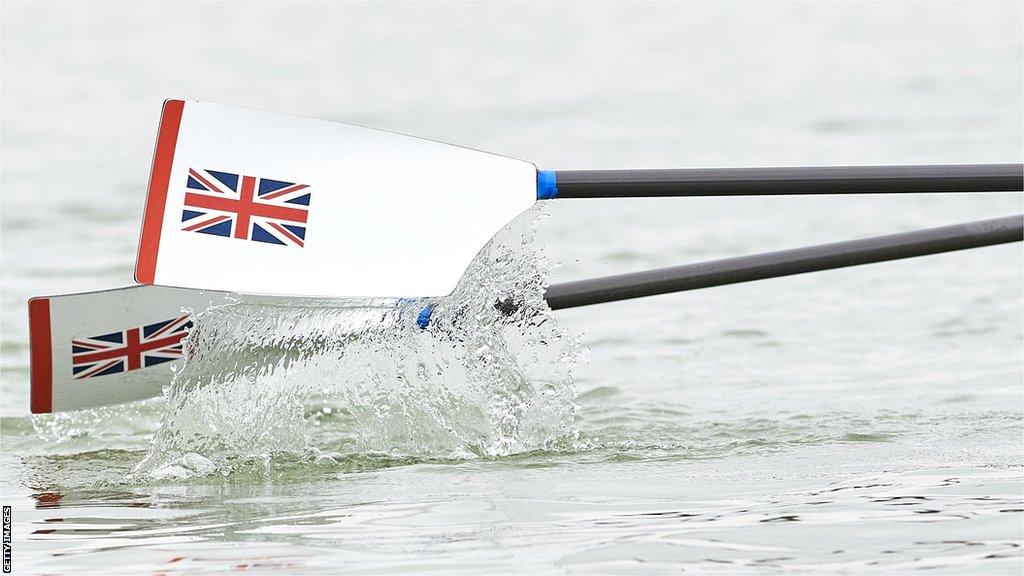British Rowing: Transgender women banned from competing in female category
- Published

In 2022, chair of British Rowing Mark Davies called on the sport's world governing body to create an 'open' category for transgender athletes
British Rowing has announced that transgender women will not be able to compete in the women's category at its events.
The governing body has changed its policy following "extensive and ongoing research and consultation".
Transgender athletes who were born female and are not undergoing hormone treatment can still enter female races.
An 'open' category will be available to transgender and non-binary rowers in competition events.
Competition organisers can also offer a mixed category, providing half the crew meet the women's category guidelines.
British Rowing previously allowed transgender women to participate in female events if their testosterone level was below a certain level for two years.
World Rowing tightened its own policy in March to reduce the allowable testosterone level, but it does allow transgender women to compete in the female category.
The British Rowing changes come into effect at the end of the season on 11 September. They will apply to athletes representing Great Britain or England at international events, including the Olympics and Paralympics.
"British Rowing is committed to promoting an environment in which rowing is accessible and inclusive and to ensuring that we provide opportunities and enjoyment for everyone," the governing body said.
"In order to achieve this in a fair manner, we need to establish conditions for competition that guarantee fair and meaningful competition by placing necessary and proportionate restrictions on eligibility."
Organisations including Fair Play for Women, Stonewall and Mermaids have been involved in the policy review since 2020, with the latest changes following consultation with more than 4,500 members of the organisations.
The eligibility policy update follows similar moves from other sports governing bodies, including World Athletics, British Cycling and swimming's Fina.